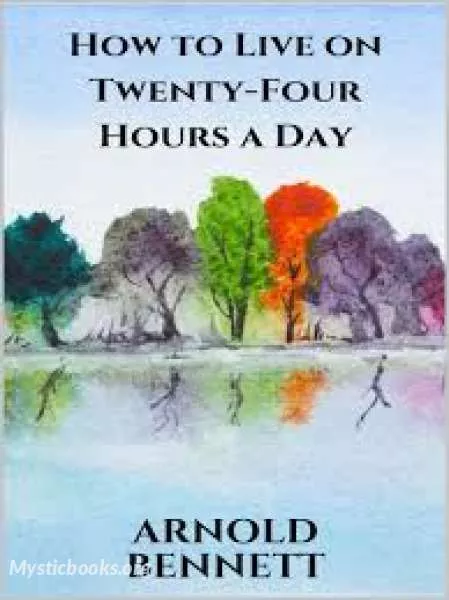
How to Live on Twenty-Four Hours a Day
'How to Live on Twenty-Four Hours a Day' Summary
In the book, Bennett offers the following advice:
- View the 24-hour day as two separate days, one encompassing the 8-hour workday and the other a 16-hour personal day to be accounted for and utilized.
- Train your mind daily to focus on a single thing continuously for an extended period, 50 minutes in his "average case" example.
- Reflect on yourself.
- Claim 90 minutes an evening for three evenings a week, to start with. More time can be found, but Bennett recommends starting small, instead of attempting a large enterprise and failing.
- Those 90 minutes can be claimed in the evening, in the morning, on the train to and from work, or other time that isn't put to good use. He recommends evenings for most people, but it depends on your schedule.
- Use that 90 minutes to improve yourself. Over the course of weeks and months, the knowledge gained in those chunks of time will add up to a significant amount.
- Literature is not the only means of self-improvement. Other reading can be very beneficial, including learning more about your business, learning about the "causes and effects" of things, and learning about history and philosophy.
- He doesn't recommend reading novels for self-improvement. He highly recommends poetry, especially verse novels such as Milton's "Paradise Lost".
Book Details
Language
EnglishOriginal Language
EnglishPublished In
1905Genre/Category
Tags/Keywords
Authors
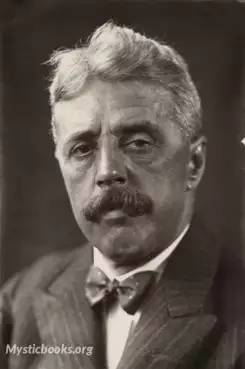
Arnold Bennett
England
Bennett is best known for his novels and short stories, many of which are set in a fictionalised version of the Potteries, which he called The Five Towns. He strongly believed that literature should b...
Books by Arnold BennettDownload eBooks
Listen/Download Audiobook
- Select Speed
Related books

Twinkly Eyes at Valley Farm by Allen Chaffee
In the quiet, picturesque town of Valley Farm, nestled amidst rolling hills and lush green meadows, lies a secret waiting to be unraveled. Twelve-year...
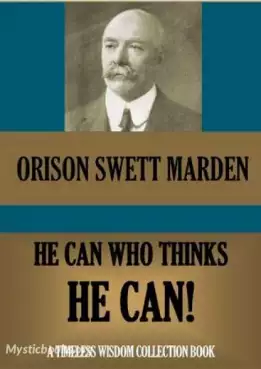
He Can Who Thinks He Can by Orison Swett Marden
Do you have what it takes to be the person you want to be? This is a neat self help book in plain English by the New Thought Movement author Orison Sw...
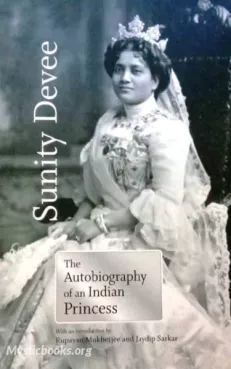
The Autobiography of an Indian Princess by Sunity Devi
Unveil the fascinating journey of an Indian princess as she navigates a world torn between tradition and modernity in "The Autobiography of an Indian...

Androgyne by Stanisław Przybyszewski
In den rauschenden Künstlerkreisen des Fin de Siècle ist ein Geheimnis verborgen, das das Schicksal eines Mannes für immer verändert. Willkommen in de...
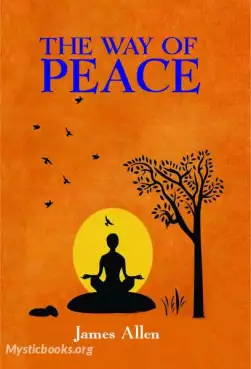
The Way of Peace by James Allen
The Way of Peace is a New Thought book written by James Allen. Although Allen is more widely known for his As a Man Thinketh, it is the lesser known T...
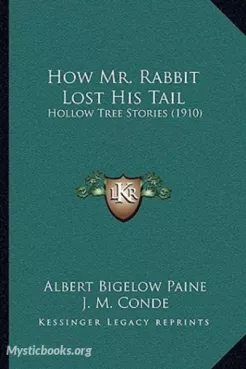
How Mr. Rabbit Lost His Tail by Albert Bigelow Pain
Delight in the heartwarming children's book, "How Mr. Rabbit Lost His Tail," penned by the talented author, Albert Bigelow Paine. Join Mr. Rabbit on a...
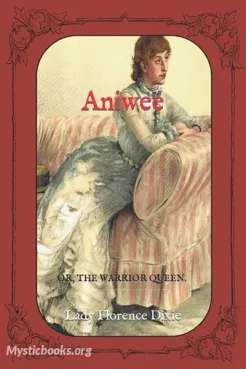
Aniwee: or, the Warrior Queen by Florence Dixie
Aniwee: or, the Warrior Queen takes readers on an exhilarating journey through a vividly imagined realm where honor, bravery, and self-discovery reign...
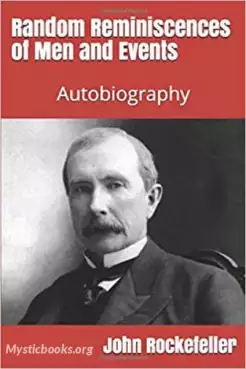
Random Reminiscences of Men and Events by John D. Rockefeller
A good book by the oil revolutionist of the 20th century. As they say "Men should listen to experience" and this book is all about the experience of t...
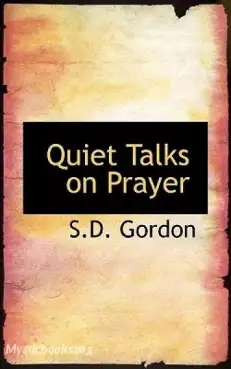
Quiet Talks on Prayer by S.D. Gordon
An open life, an open hand, open upward, is the pipe line of communication between the heart of God and this poor befooled old world. Our prayer is Go...

The Heart of the New Thought by Ella Wheeler Wilcox
A new book of original essays by this gifted woman dealing with The New Thought in practice. It deals with the practice of New Thought in our daily li...
Reviews for How to Live on Twenty-Four Hours a Day
